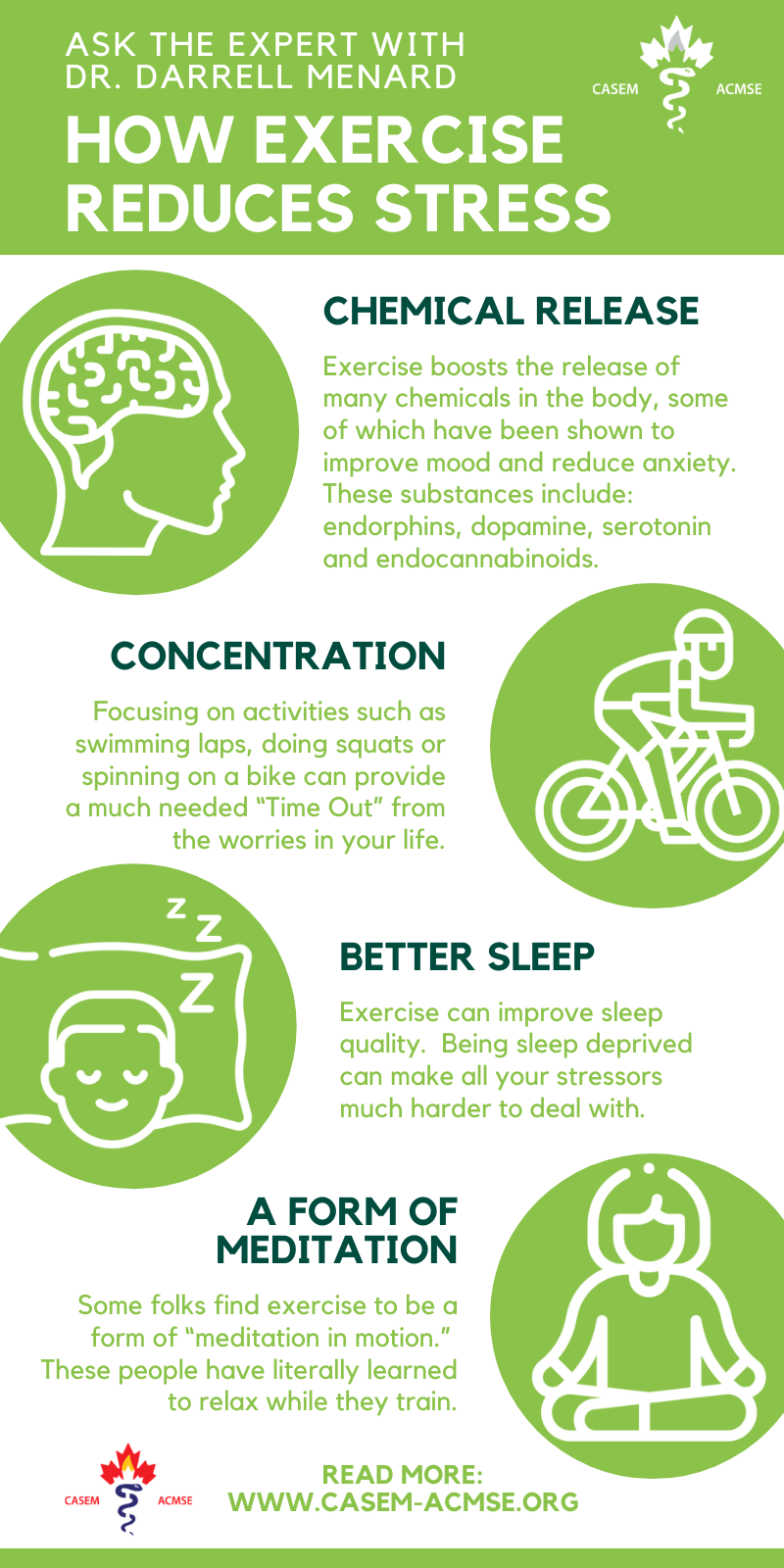Exercise and Stress Management
Q: My life is quite stressful and I don’t see this changing any time soon. I exercise regularly because I enjoy doing it and it makes me feel good. A month ago, I broke my ankle. This is really limiting my ability to exercise and I’m starting to have trouble handling the normal stressors in my day. Is exercise truly helpful in managing stress or is this just my imagination?
– Tense Terry
A: Dear Tense Terry:
Sorry about your injury. In our busy world, it is impossible to eliminate all the stress in our lives but there are a variety of strategies one can use to reduce stress and exercising regularly is one of them. While aerobic exercise has been shown to be a particularly effective stress reducer, virtually any form of exercise can help to improve mood, reduce anxiety and enhance feelings of wellbeing.
While the exact mechanism by which exercise helps to reduce stress is uncertain, there are several possible explanations:
- Exercise boosts the release of many chemicals in the body, some of which have been shown to improve mood and reduce anxiety. These substances include: endorphins, dopamine, serotonin and endocannabinoids.
- Focusing on activities such as swimming laps, doing squats or spinning on a bike can provide a much needed “Time Out” from the worries in your life.
- Exercise can improve sleep quality. Being sleep deprived can make all your stressors much harder to deal with.
- Some folks find exercise to be a form of “meditation in motion.” These people have literally learned to relax while they train.
If you are planning to use exercise to help with stress management, the following are some important tips to keep in mind:
- Exercise should be one part of your stress management strategy – not the only part
- You don’t need to be physically fit or a competitive athlete to use exercise to help you better manage stress
- Perhaps try exercising with a partner. An Oxford University study showed rowers who exercised together experienced more endorphin release than people who rowed alone.
- You might want to try listening to music while you train – this has also been shown to increase endorphin release
- Do something you enjoy – if you hate stationery cycling, it is unlikely you will find it stress reducing. Exercising outside in nature may have added benefits.
- Find your own exercising ‘sweet spot’– doing too little will offer little benefit and working out too intensely may make the exercise itself stressful.
Bottom line: Regular physical activity will not only help you better manage the stress in your life but it also offers an enormous number of other health and wellness benefits. Stay active and remember that “Movement is Medicine”.
Dr. Darrell Menard OMM MD, Dip Sport Med
Dr. Menard is the Surgeon General’s specialist advisor in sports medicine and has worked extensively with athletes from multiple sports. As part of the Strengthening the Forces team he works on injury prevention and promoting active living.
Strengthening the Forces is CAF/DND’s healthy lifestyles promotion program providing expert information, skills and tools for promoting and improving CAF members’ health and well-being.

READ MORE:

